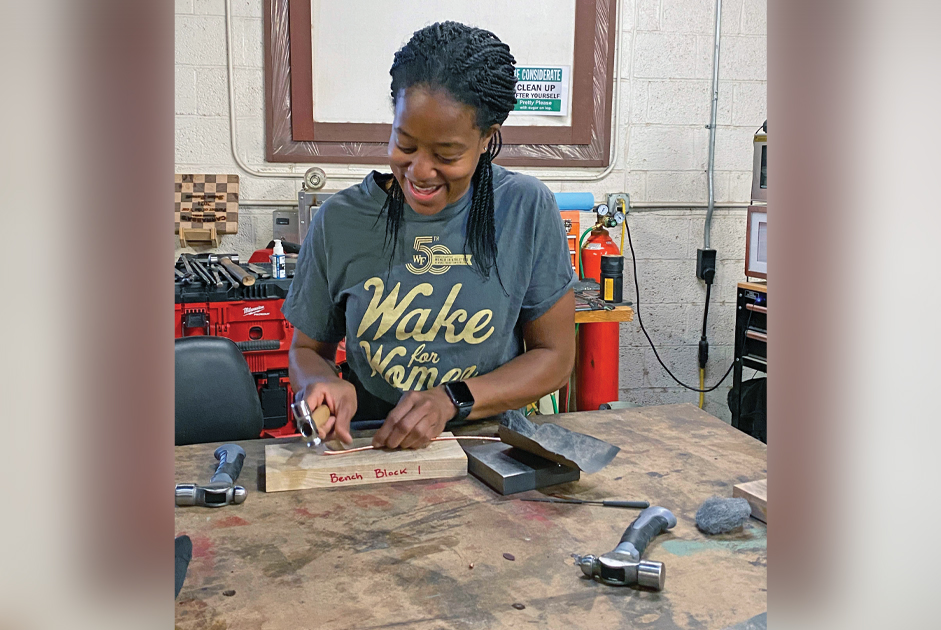When former Boston Red Sox Pitcher, John Trautwein, stepped onto the stage at LJVM Coliseum on Monday night, April 16th, before an audience predominately made up of students, parents, athletes, teachers, coaches, and more, it wasn’t to speak about baseball, at least not entirely. Instead, John had a very special message he wanted to deliver to the young people and others in attendance. John’s story is one of triumph and tragedy, and one that he feels compelled to share with others in hopes they can avoid this same tragedy in their own lives.
Up until October 15th, 2010, he had lived a celebrated and successful life by many standards. He worked his way from the recreation league to Major League Baseball with the Boston Red Sox. He had a degree from Northwestern University and a lovely wife, Susie, who had graduated from the University of Virginia. Together, they had four beautiful children, three boys and one girl. Life was good for the Trautweins, or so they thought. But, in truth, one son, in particular, wasn’t feeling that life was going the way he had planned. John and Susie’s son, Will, who was fifteen years old and a freshman in high school in 2010, was an excellent student, played on the lacrosse team as well as in a band, and was one of those guys his friends liked talking to about their problems. He had lots of friends, and as far as John and Susie were concerned, a great life. However, Will, unbeknownst to his family, was going through his own private struggles, whether it was stress over his desire for high achievement in school and on the lacrosse field, or over his recent breakup with his girlfriend six weeks earlier. The precise reason may never be known, yet the result was that on that Friday in October, Will, would take his own life, leaving behind his family, friends, teammates, and a community who loved him very much.
At Will’s funeral, as John looked out at the crowd, he noticed, in particular, Will’s lacrosse teammates were all there, wearing their jerseys and sitting together. As he looked at the faces of those young athletes, along with the many friends and classmates sitting near them, he experienced a consciousness in that moment that transformed him long after the ceremony was over. On that day, John realized many of your closest friends in life (a.k.a. “Life Teammates”) come to you during your teen years. Whether it’s classmates, teammates, or whoever it might be, often these are the connections that are there for you long after you graduate. These same young people grew up with you, shared similar thoughts, experiences, highs, and lows of life. You can say many of them understand you and what you’re going through, because they, too, are going through comparable challenges.
It’s this awareness that led John to form the Will To Live Foundation, to bring further attention to teen suicide and educate about mental illness and its stigma, and, most of all, to bring hope. His message to young people today is that they have it harder than generations past. The CDC reports a 70% increase in teen suicides since 2006. Technology has made their world smaller, more competitive, and less patient. They live each day knowing their mistakes made in the morning could be broadcast across campus to everyone by the afternoon. Their lives are on display for others to see and judge accordingly. Their expectations are equally high. He notes the number-one stressor for high school students is what college they will get into when they graduate. He further explains they live in a 24/7 world of academic, athletic, social, and career/economic stresses to deal with.
His recommendation for a helpful outcome is to emphasize to young people that sometimes it’s easier to talk to a friend about your troubles. Subsequently, he uses the acronym ACT, which stands for Acknowledge and listen to your friend and don’t ignore threats. Let them know you Care and Tell an adult that you’re worried about your friend when it’s appropriate. He knows parents always want their children to be okay, and that’s precisely why some teens choose not to talk to their parents about their troubles. Parents’ responses tend to be “it’s going to be all right, don’t worry so much about it,” whereby your “teammates,” including your friends, know a different, perhaps more empathetic, way to respond that is more effective. He points out, for instance: a compliment by your teammates carries much more weight than a compliment from your coach or parent.
He left the audience with this message…your Life Teammates (a.k.a. friends) need you, be there for them; learn from your mistakes and don’t simply focus on the things that go wrong, notice equally what goes right, and deliver hope to those around you. He emphasizes that depression is an illness; it’s treatable, and it’s curable. So remember, it’s okay not to be okay, just make sure you talk openly about it with someone you trust.
You never know what words you speak or actions you take that may truly save a life one day. It’s up to you to make a difference; you just may be the person’s only hope.
For more information, visit will-to-live.org, and remember, if you or someone you know is in need of help, don’t wait, act now and contact the suicide prevention hotline at 1-800-SUICIDE (1-800-784-2433).























